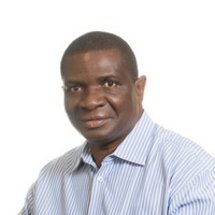
Innocent Pikirayi is professor in Archaeology and Head of the Department of Anthropology and Archaeology at the University of Pretoria, South Africa. Professor Pikirayi is a leading scholar in African archaeology and social complexity, with his main research interests being the rise, development and demise of ancient state societies. Professor Pikirayi has been developing geoarchaeological and historical archaeological approaches to investigate past crises and resilience at Great Zimbabwe, the capital of southern Africa’s first empire. He is now leading new, pioneering research using architectural energetics analysis for the first time in Africa to assess the labour required to build major structures at Great Zimbabwe and how monumental architecture was used in the practice of power and economics.
Another strand of his research deals with furthering community and public engagement approaches with the objective of transforming and decolonising archaeological practice in southern Africa. He has been involved with the repatriation of human remains to the Mapungubwe Cultural Landscape and UNESCO World Heritage Site. Together with Professor Peter Schmidt from the University of Florida, he has published an edited volume titled Community Archaeology and Heritage in Africa (Routledge, 2016), which received the CHOICE – 2018 Outstanding Academic Title – Award. Other select publications include:
During his visit, Professor Pikirayi will, among other activities, deliver two lectures addressing the origins and development of urbanism and complex societies in Southern Africa focusing on the Zimbabwe plateau and adjacent regions. These will be followed by a workshop session for student training on social complexity and community archaeology.
7 May 16:00-17:00: Lecture: Social complexity and urban development in Africa/Southern Africa
9 May 14:00-16:00: Workshop: Social complexity and urban development in Africa/Southern Africa (based on the lecture previous lecture)
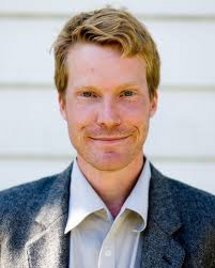
Most of Eivind Heldaas Seland's research addresses how economy, political power, and ideology/religion interacted in early states/complex societies in the the ancient world. In particular he works with the Indian Ocean/Red Sea region and the Near East, but he is also interested in the Mediterranean and Central Asia.
Currently Seland is investigating how the physical environment influenced travel and communication along both sea and land routes. He also studies how historians, archaeologists and paleoclimatologists have cast climate as an agent of historical change, in order to identify good models of climate-society interrelation.
He is co-organizing the exploratory workshop series Globalization, Urbanization and Urban Religion in the Eastern Mediterranean in the Roman and Early Islamic periods, funded by The Joint Committee for Nordic research councils in the Humanities and Social Sciences (2018-2019).
Together with his colleague Simon Malmberg, Seland is developing a new research initiative called Mediterranean on the Move.
He recently finished a four-years project funded by the Research council of Norway: "Mechanisms of cross-cultural interaction: Networks in the Roman Near East" (2013-17). The project investigated networks of commercial, religious and political nature within and across fluctuating imperial borders in the Near East in the Roman period. His postdoc investigated the trade of Palmyra, Syria, and how it related to the different land- and maritime networks of the ancient world. He has also worked with Indian Ocean trade and global history, and continues to engage with all these topics.
His many publications include:
During his stay (April-June 2019) Eivind Heldaas Seland will give a lecture series entitled Urban networks in the world trade of the first centuries CE. In the millennium ca 300 BCE–700 CE, the relationship between the three continents of Asia, Europe and Africa was constantly recast in a complex matrix of local, regional, inter-regional and long-distance exchanges. While a variety of mechanisms were at work, trade was arguably the sole system-wide factor interconnecting all others, from individual through proto-global/system-wide scale.
This lecture series explores the role of cities and the networks they were part of in the world trade of the first centuries CE. Starting with the theoretical foundations for the study of cities in premodern long-distance trade it moves on to discuss urban centres as the physical and institutional focal points on which the social, commercial and political networks that facilitated ancient world trade rested. Cases from the Mediterranean world, the Indian Ocean, the Near East and the so-called Silk Road, are used to investigate and elucidate the operation and vital significance of urban networks in the ancient world trade.
The lecture series includes the following lectures:
29 April 13:00-14:00: Lecture 1: Cities, networks, and trade. Theoretical foundations
6 May 13:00-14:00: Lecture 2: Networks of places
20 May 13:00-15:00: Double lecture (3 + 4): Networks of things and Networks of people
3 June 13:00-14:00: Lecture 5: Spatiality of ancient world trade
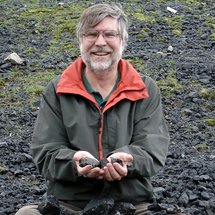
Michael E. Smith is an archaeologist specializing in the Aztecs of central Mexico. His professional title is Professor of Anthropology in the School of Human Evolution and Social Change (formerly the Department of Anthropology) at Arizona State University. He has directed fieldwork projects at Aztec sites in the Mexican state of Morelos and in the Toluca Valley. His research focuses on two broad areas: Aztec social and economic organization, and the comparative analysis of ancient urban societies. His theoretical and comparative interests derive from a scientific, materialist, political-economy approach to ancient state societies. He has published on topics of urbanism, imperialism, households, and economic organization.
His many publications include:
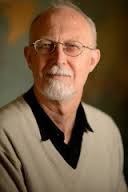
Over the past thirty years Roland Fletcher has developed a global and interdisciplinary perspective in Archaeology, that integrates research, teaching and service. His fields of expertise are the theory and philosophy of archaeology, the study of settlement growth and decline and the analysis of large-scale cultural phenomena over time. In 1995 Fletcher published The Limits of Settlement Growth: a theoretical outline - an analysis of the past 15,000 years of settlement-growth and decline - with Cambridge University Press. Fletcher has an international reputation as a radical theorist and as the instigator of the Greater Angkor Project, which derives from his theoretical work and is part of a major research program in Cambodia. The program of research on Angkor has developed international collaborations for the University of Sydney and has enhanced its public profile through media presentations, such as the National Geographic International TV program 'Lost City'. The Angkor research team also serves the intentional community through the applied research of the Living with Heritage Project at Angkor, in collaboration with the Cambodian government and UNESCO.
In June 2018 Fletcher visited UrbNet giving a 3-part lecture with accompanying workshops in a series about material behaviour.
Fletcher's many publications include:
During his stay (3-30 June 2019), Roland Fletcher will give a lecture series, containing three lectures and three discussion-seminars (title of lecture series: Material Behaviour and the Dynamics of Settlement Trajectories from the Upper Palaeolithic to the Present)
- Lecture 1 (11 June 2019): Mobile Communities and the Transition to Sedentism - 15th to 3rd millennium BCE.
- Lecture 2 (18 June 2019): The Transition to Agrarian Urbanism - 4th millennium BCE to 1st millennium CE.
- Lecture 3 (25 June 2019): The Transition to Industrial Urbanism - 2nd millennium CE.
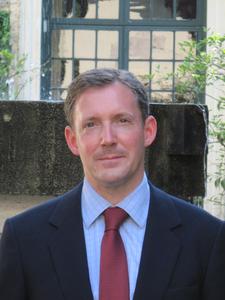
Christopher John Smith is a Professor of Ancient History at the University of St Andrews and former Director of the British School in Rome. In 2017 he was selected as recipient of the Premio ‘Cultori di Roma’ in recognition of his contribution to research and scholarship on the city of Rome.
His research interests include the social and economic development of early Rome & Latium, particularly as evidenced through archaeology and comparative developments in the southern and eastern Mediterranean. Within this, he has addressed general aspects of urbanization and state formation.
He has also investigated the evolution and legal and symbolic significance of republican political institutions, particularly the gens, and how these were characterised by contemporary sources and interpreted in the modern historiography of the subject from Sigonio to Vico, Lewis Henry Morgan, Engels and Marx to the current day.
His interest in historiography, with a specific interest in fragmentary Roman historians, extends to Greek historiography and to writers such as Plutarch, Pliny the Elder and Aulus Gellius, who are our sources for much fragmentary literature, as well as the periods of the late Republic which generated the most substantial historical accounts. This in turn has led him to work on Cicero.
His current project, funded by the Leverhulme Trust, uses Roman kingship as a point of departure for a broader study of power in archaic societies, and the legacy of Roman ideas about sovereignty in the modern day.
His numerous publications include (in selection):
Smith, C. J. (2018). Gli Etrusci, Milan.
Smith, C. J. (2012). "A Hundred Years of Roman History: Historiography and Intellectual Culture", Papers of the British School at Rome 80, 295-323, DOI: https://doi.org/10.1017/S006824621200013X.
Smith, C. J. & Powell, A. (eds). (2009). The lost memoirs of Augustus: and the development of Roman autobiography, Swansea.
Smith, C. J. (2005). "The 'Origo Gentis Romanae': Facts and Fictions", Bulletin of the Institute of Classical Studies 48:1, 97-136.
Smith, C. J. (1996). Early Rome and Latium: Economy and Society c. 1000 to 500 BC, Oxford-New-York.